- Home
- Kait Nolan
When You Got A Good Thing (The Misfit Inn Book 1)
When You Got A Good Thing (The Misfit Inn Book 1) Read online
Contents
When You Got A Good Thing
Copyright
Dedication
Chapter One
Chapter Two
Chapter Three
Chapter Four
Chapter Five
Chapter Six
Chapter Seven
Chapter Eight
Chapter Nine
Chapter Ten
Chapter Eleven
Chapter Twelve
Chapter Thirteen
Chapter Fourteen
Chapter Fifteen
Chapter Sixteen
A Note From Kait
Those Sweet Words
Other Books By Kait Nolan
When You Got A Good Thing
A Misfit Inn Novel
By Kait Nolan
When You Got A Good Thing
Written and published by Kait Nolan
Copyright 2017 Kait Nolan
All rights reserved, including the right to reproduce this book, or portions thereof, in any form.
AUTHOR’S NOTE: The following is a work of fiction. All people, places, and events are purely products of the author’s imagination. Any resemblance to actual people, places, or events is entirely coincidental.
License Notes
This ebook is licensed for your personal enjoyment only. The ebook may not be re-sold or given away to other people. If you would like to share this book with another person, please purchase an additional copy for each person you share it with. If you’re reading this book and did not purchase it, or it was not purchased for your use only, then you should purchase your own copy. Thank you for respecting the hard work of this author.
Cover design by Kait Nolan
For the misfits. The family you make is the most important.
Chapter One
“WELCOME TO O’LEARY’S PUB. What can I get you?” The greeting rolled off Kennedy Reynolds’ tongue as she continued to work the taps with deft hands.
The man on the other side of the long, polished bar gaped at her. “You’re American.”
Kennedy topped off the pint of Harp and slid it expertly into a patron’s waiting hand. “So are you.” She injected the lilt of Ireland into her voice instead of the faint twang of East Tennessee. “You’d be expectin’ somethin’ more along these lines, I’d wager. So what’ll it be for a strapping Yank like yourself?”
The guy only blinked at her.
So she wasn’t exactly typical of County Kerry, Ireland. Her sisters would be the first to say she wasn’t exactly typical of anyone, anywhere. It didn’t bother her. But there was a line stacking up behind this slack-jawed idiot, and she had work to do.
“Can I suggest a pint of Guinness? Or perhaps you’d prefer whiskey to warm you through? The night’s still got a bit of a chill.”
He seemed to shake himself. “Uh, Jameson.”
She poured his drink, already looking past him to take the next order, when he spoke again.
“How’s a girl from—is that Texas I hear in there?—wind up working in a pub in Ireland?”
This again? Really? Kennedy repressed the eye roll, determined to be polite and professional
A big, long-fingered hand slapped the guy on the shoulder hard enough to almost slosh the whiskey. “Well now, I suppose herself walked right in and answered the help wanted sign.” The speaker shifted twinkling blue eyes to Kennedy’s. “That was how it happened in Dublin, now wasn’t it, darlin’?”
“And Galway,” she added, shooting a grin in Flynn’s direction. “I’d heard rumor you were playing tonight. Usual?”
“If you’d be so kind. It’s good to see you, deifiúr beag.” His voice was low and rich with affection, the kind of tone for greeting an old lover—which was laughable. Flynn Bohannon was about as far from her lover as he could get. But it did the trick.
With some relief, Kennedy saw the American wander away. “Thanks for that.”
“All in a day’s work,” Flynn replied.
“I’ve missed your pretty face.” She glanced at the nearly black beard now covering his cheeks as she began to pull his pint of Murphy’s Irish Stout. “Even if you are hiding it these days.”
He grinned, laying a hand over his heart. “Self preservation, love.”
“You keep telling yourself that.” Kennedy glanced at the line snaking back through the pub. “I’m slammed here, and you’re starting your set shortly. Catch up later?”
Flynn lifted the beer and toasted her before making his way toward the tiny stage shoehorned beside the fireplace, where the other two members of his trio were waiting.
Mhairi, one of the waitstaff, wandered over, setting her tray on the bar as she all but drooled in his direction. “Well now, I’d not be kickin’ that one out of bed for eating crisps.”
“Wait ’til you hear him play.”
Mhairi glanced back at Kennedy, lifting a brow in question. “Are you and he…?”
“No. Just friends. The way there is clear, so far as I know.”
The waitress smiled. “Brilliant.” She reeled off orders and it was back to the job at hand.
As Kennedy continued to pour drinks, Flynn and his band tuned instruments. They weren’t the same pair who’d been with him in Dublin, whom she’d traveled with for several weeks as an extra voice. That wasn’t much of a surprise. It’d been—what?—a year or so since they’d parted in Scotland. Flynn would, she knew, go where the music took him. And that sometimes meant changing up his companions. He was as much an unfettered gypsy as she was, which was why they’d become such fast friends. But whereas he didn’t mind a different city or village every night, she preferred to take a more leisurely pace, picking up seasonal work and staying put for two or three months at a stretch. Really immersing herself in the culture of a place. The ability to pause and soak in each new environment gave her both the thrill of the new and kept her from feeling that incessant, terrified rush of not being able to fit in everything she wanted to see or do. It was important to her to avoid that, to take the time to be still in a place and find out what it really had to teach her.
The itinerant lifestyle worked for her. She’d seen huge chunks of the world over the past decade, made friends of every stripe, picked up bits and pieces of more than a dozen languages. Many people saw her life as unstable. She preferred to think of it as an endless adventure. What did their stability give them? Consistent money in the bank, yes. But also boredom and stress and a suffocating sameness. No, thank you. Kennedy would take her unique experiences any day. Never mind that the desk jobs and business suits had never even been a possibility for her. She’d been ill-suited for the education that led to those anyway.
Across the pub, Flynn drew his bow across his fiddle and launched into a lively jig. The crowd immediately shifted its focus. Those who knew the tune began to clap or stomp in time, and a handful of patrons leapt up and into the dance. Kennedy loved the spontaneity of it, the unreserved joy and fun. As jig rolled into reel and reel into hornpipe, she found herself in her own kind of dance as she moved behind the bar. Flynn switched instruments with the ease of shaking hands, playing or lifting his voice as the tune dictated. He even dragged Kennedy in for a couple of duets that made her nostalgic for their touring days. His music made the night pass quickly, so she didn’t feel the ache in her feet until she’d shut the door behind the last patron.
Flynn kicked back against the bar. “A good night, I’d say.”
“A very good night,” Kennedy agreed.
“Help you clean up?”
“I wouldn’t say no.”
They went through the motions with the other staff, clearing tables,
wiping down, sweeping up. Mhairi went on home—disappointed. And Kennedy promised Seamus, the pub’s owner, that she’d lock up on her way out. Then, at long last, she settled in beside the remains of the fire with her own pint.
Flynn lifted his. “To unexpected encounters with old friends.”
“Why unexpected?”
“You said yourself you rarely stay more than three months in a place. You’ve already been from one coast of Ireland to the other. I didn’t expect you back.”
“I always seem pulled back here,” she admitted. “The people. The culture. As a whole, I suppose Ireland has been as close as I’ve had to a home base over the past ten years. I’ve spent more collective time in this country than anywhere else combined since I started traveling.”
“How long have you been in Kerry?”
“Coming up on three months.”
“Thinking of settling?” he asked.
Was she? No. She still felt that vague itch between her shoulder blades that she got every time she’d been long enough in a place. She knew she’d be moving on soon, searching for the next place to quiet the yearning she refused to acknowledge. “Not exactly. I haven’t decided where I want to go next. Which isn’t the same thing.” She took a breath and spilled out the news she’d told no one. “I’ve been contacted by a book editor in New York. She wants me to turn my blog into a book.”
“Really?” Flynn’s grin spread wide and sparkling as the River Liffey. “That’s grand!”
It was the most exciting thing to ever happen to her, and she was glad to finally get a chance to share it. “I haven’t said yes.”
“Why not? Are the terms not to your liking?”
“We haven’t gotten that far. I’m still thinking about it.” Still looking for reasons to talk herself out of it.
“What’s there to think about?” Flynn prodded.
“A book means deadlines and criticism and working on other people’s schedules. None of those are exactly my strong suit.”
“Bollocks. Every job you’ve had has been on someone else’s schedule. As to deadlines, how hard can it be to take what you’ve already written and turn it into a book? Not All Who Wander is well-written, engaging, and personal. You’re a talented writer.”
On her better days, Kennedy could admit that. But it was one thing having her little travel blog, with its admittedly solid online following, be read and commented on via the anonymity of the internet. It was a whole other animal turning that into a book that lots of people could read. Or not read, as the case might be. That was opening herself up to a level of failure she didn’t even want to contemplate.
“She’s offered to fly me to New York to meet with her, and I’m thinking about taking her up on the offer. I might feel better about the idea of the project if we talk about it in person.”
“And if you go back across the pond, will you finally take a detour home?”
At the mention of Eden’s Ridge, Kennedy felt some of her pleasure in the evening dim. “It hasn’t really been on my radar as an option.”
“Maybe it should be.”
She lifted a brow. “This from the man who’s been on the go nearly as long as I have?”
“I travel and often, yes, but I’ve been home. I’ve seen my family. You’ve been running.”
“I’m not running,” she insisted.
“All right, not running. Searching, then. For something. In all your travels, have you found it?”
“How can I even answer that? I don’t know what I’m looking for.” But that was a lie. She knew what she was looking for and knew she wouldn’t find it in any new country, on any new adventure.
“I’d say that’s an answer in and of itself.”
Kennedy scowled into her beer. “I’ve had my reasons for staying away from home.”
“They aren’t family. You’ve seen them since you left. So who?”
Her gaze shot to his.
Flynn jerked his shoulders and gave an easy smile. “Deduction, deifiúr beag. Who was he?”
Someone better off without me.
She was saved from answering by the ringing of her mobile phone. “Late for a call.” Fishing it out of her pocket, she saw her mother’s number flash across the screen. “Not so late back in Tennessee.” She hit answer. “Hey, Mom.”
“Kennedy.”
At the sound of her name, she felt her stomach clench into knots. Because it wasn’t her mother, and the strain in her eldest sister’s voice was palpable. “Pru?”
“Are you sitting down?”
Absolutely nothing good could follow those words. “What?”
Beside her, Flynn straightened, setting his pint to the side.
“You’re not on the street where you can accidentally walk into traffic or something are you?”
“I’m sitting. What the hell is going on? Where’s Mom?”
Her sister took a shaky breath. “Kennedy, Mom was in an accident. Her car was in the shop, and she was in a loaner. We’ve had a cold snap.”
“What?” Kennedy whispered.
“She…” Pru gave a hiccuping sort of sob. “She didn’t make it.”
The earth fell out from beneath Kennedy’s chair, and she curled her hand tighter around the phone, as if that pitiful anchor would help. She didn’t even recognize her own voice as she asked, “Mom’s dead?”
She wasn’t aware of Flynn moving, but suddenly he was there, his strong hand curling around hers.
“The doctors said it was all but instant. She didn’t suffer. I…we need to make arrangements.”
“Arrangements.” She needed to get the hell off the phone. She needed to move, to throw something, to rail at the Universe because this…this shouldn’t be happening. “I have to go.”
“Kennedy, I know this is hard but—”
“I’m coming home. I’ll be there absolutely as soon as I can. Call you back as soon as I know when.” She hung up before Pru could answer.
“Do you want me to come with you?” Flynn asked.
He would. He’d cancel whatever bookings he had and fly across an ocean with her to face the grief and demons that waited in Eden’s Ridge. But this was for her to do.
“No. I… No.” Lifting her eyes to his, she felt the weight of grief land on her chest like a boulder. She’d never again hear her mother’s laugh. Never smell her mother’s favorite perfume. Never get a chance to tell her the truth about why she’d walked away. “Flynn.”
Without word, without question, he tugged her into his arms, holding tight as the first wave crashed over her, and she fell apart, the phantom scent of violets on the air.
~*~
Chief Deputy Xander Kincaid parked his cruiser in front of the rambling Victorian that had been Joan Reynolds’ home. He retrieved the covered dish of chicken enchiladas sent by his mama—the first wave of death casseroles that would soon fill the old kitchen to bursting—and headed for the front door. Despite its size, with its muted gray paint, the house tended to blend into the woods and mountains around it. Joan had loved this house. She’d always said it was a peaceful spot, a good place to heal and a good place to love. And she’d done exactly that for nearly twenty-five of her sixty-two years, filling the over-sized house with foster children who’d needed a home and someone to love them.
No telling whose home it would become now. Pru had moved back in. As the only one of Joan’s adopted girls who hadn’t moved away, she’d immediately stepped in to take over guardianship of Ari Rosas, Joan’s most recent—well, her last foster child. But he didn’t imagine Pru could afford the upkeep of the place on her income as a massage therapist—especially after the death taxes and probate lawyer had their way with the place. And what, he wondered, would happen with Ari, whose adoption hadn’t yet been finalized?
Juggling the casserole dish, he rang the bell and waited. And waited.
Backing up on the porch, he craned his head to peer around toward the barn. Pru’s car was there. He tried the knob and found it unlocked. Maki
ng a mental note to have a word with her about security, even here on the Ridge, he stuck his head inside. “Pru?”
She appeared at the head of the stairs, her big brown eyes red-rimmed from crying. “Sorry. I was just…” She tailed off, waving a vague hand down the hall.
“It’s fine.” He lifted the enchiladas. “Mama wanted me to bring these by. She thought with your sisters coming in, the last thing you or any of them would want to do is cook.”
Xander watched as manners kicked in. Her posture straightened, her expression smoothing out as she locked down the grief.
“That’s so kind of her.” She came down the stairs and reached for the dish. “I’ll just go put this in the kitchen.”
He followed her back.
“No one’s here just yet,” she said, a false bright note in her voice, as if everything was fine and her world wasn’t falling apart.
Xander waited until she slid the casserole into the fridge before he simply wrapped his arms around her. “Pru. I’m so sorry.”
For a long moment, she stood there like a wooden post. Then a shudder rippled through her as her control fractured. Her arms lifted and she burrowed in.
“This shouldn’t have happened,” she whispered. “If she’d been in her own car instead of that tin can loaner, it wouldn’t have.”
Xander wasn’t sure Joan’s SUV would’ve handled the patch of black ice any better, but he remained silent. The fact was, nobody expected black ice in east Tennessee in March. Not when daytime temperatures were almost to the sixties. Joan’s hadn’t been the only accident this week. But she’d been the only fatality.
He ran a hand down Pru’s silky, dark brown hair, hoping to soothe, at least a little. But this wasn’t like middle school, when he’d been able to pound Derek Pedretti into the ground for making Pru cry by calling her fat. There was no one he could take to task, no one to be punished. Grief simply had to be endured.

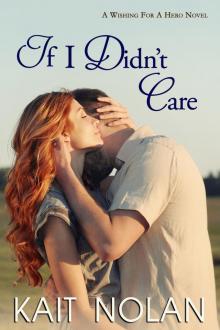 If I Didn't Care
If I Didn't Care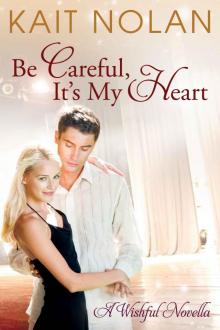 Be Careful, It's My Heart
Be Careful, It's My Heart Turn My World Around
Turn My World Around Red
Red Know Me Well
Know Me Well Once Upon a Snow Day
Once Upon a Snow Day Once Upon an Heirloom
Once Upon an Heirloom Just for This Moment
Just for This Moment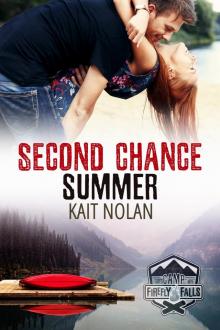 Second Chance Summer
Second Chance Summer Those Sweet Words
Those Sweet Words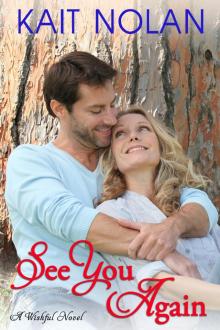 See You Again
See You Again_preview.jpg) Once Upon A Coffee (Meet Cute Romance)
Once Upon A Coffee (Meet Cute Romance)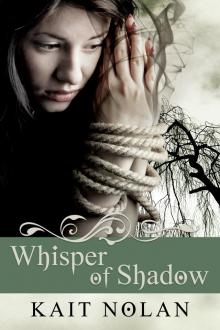 Whisper of Shadow: A Mirus Short Story
Whisper of Shadow: A Mirus Short Story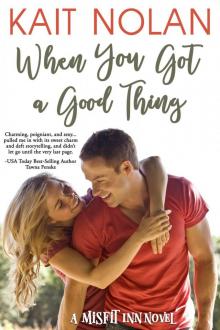 When You Got a Good Thing
When You Got a Good Thing Snowed In With The Ranger: A Rescue My Heart Prelude
Snowed In With The Ranger: A Rescue My Heart Prelude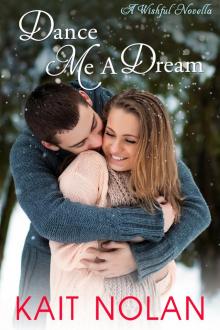 Dance Me a Dream
Dance Me a Dream_preview.jpg) Once Upon A Setup (Meet Cute Romance)
Once Upon A Setup (Meet Cute Romance)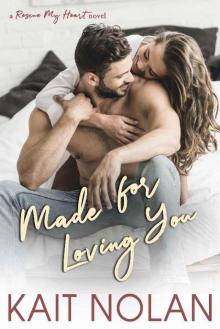 Made For Loving You (Rescue My Heart Book 3)
Made For Loving You (Rescue My Heart Book 3) Wish I Might
Wish I Might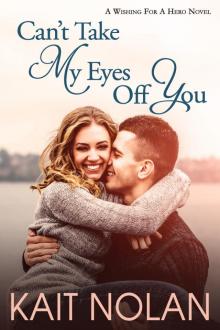 Can't Take My Eyes Off You
Can't Take My Eyes Off You A Lot Like Christmas
A Lot Like Christmas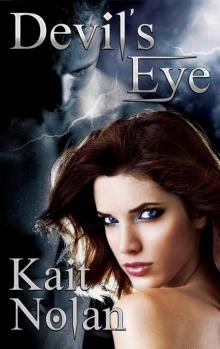 Devil's Eye
Devil's Eye To Get Me to You
To Get Me to You What I Like About You
What I Like About You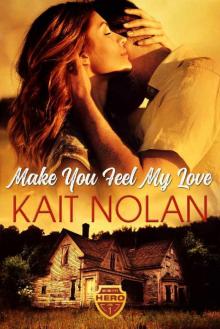 Make You Feel My Love: A Small Town Romantic Suspense (Wishing For A Hero Book 1)
Make You Feel My Love: A Small Town Romantic Suspense (Wishing For A Hero Book 1)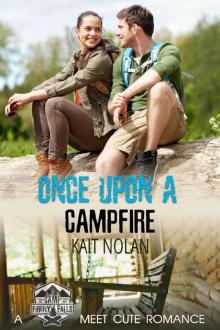 Once Upon a Campfire
Once Upon a Campfire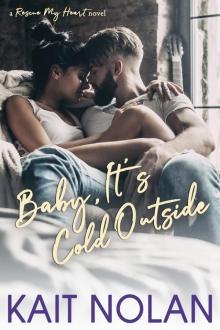 Baby, It's Cold Outside
Baby, It's Cold Outside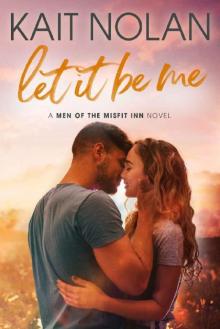 Let It Be Me (Men of the Misfit Inn Book 1)
Let It Be Me (Men of the Misfit Inn Book 1) Once Upon a Rescue
Once Upon a Rescue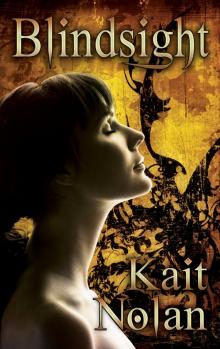 Blindsight:: A Mirus Short Story
Blindsight:: A Mirus Short Story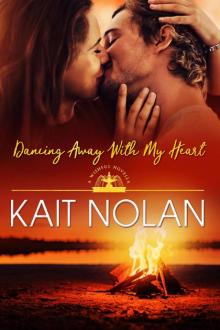 Dancing Away With My Heart
Dancing Away With My Heart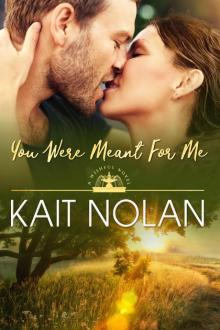 You Were Meant For Me
You Were Meant For Me Don't You Wanna Stay
Don't You Wanna Stay Riven
Riven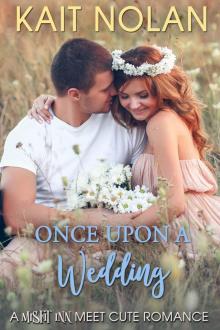 Once Upon a Wedding
Once Upon a Wedding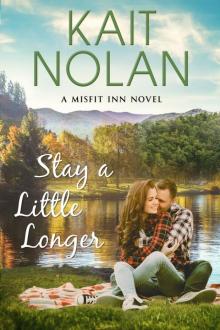 Stay a Little Longer
Stay a Little Longer Our Kind of Love (Men of the Misfit Inn Book 2)
Our Kind of Love (Men of the Misfit Inn Book 2) Forsaken By Shadow (Mirus)
Forsaken By Shadow (Mirus) Once Upon A Coffee
Once Upon A Coffee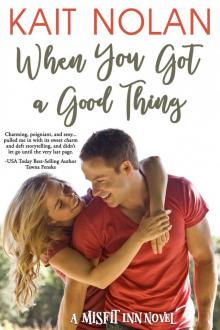 When You Got A Good Thing (The Misfit Inn Book 1)
When You Got A Good Thing (The Misfit Inn Book 1)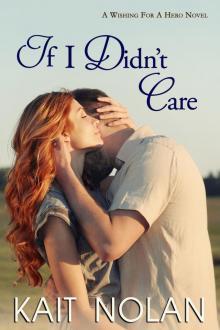 If I Didn't Care (Wishing For A Hero #1)
If I Didn't Care (Wishing For A Hero #1)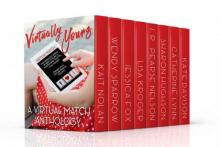 Virtually Yours: A Virtual Match Anthology
Virtually Yours: A Virtual Match Anthology To Get Me To You: A Small Town Southern Romance (Wishful Romance Book 1)
To Get Me To You: A Small Town Southern Romance (Wishful Romance Book 1)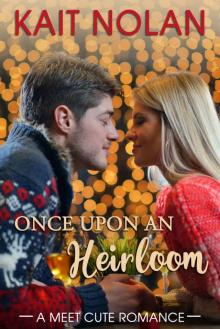 Once Upon An Heirloom (Meet Cute Romance Book 3)
Once Upon An Heirloom (Meet Cute Romance Book 3) Once Upon A Snow Day (Meet Cute Romance Book 1)
Once Upon A Snow Day (Meet Cute Romance Book 1)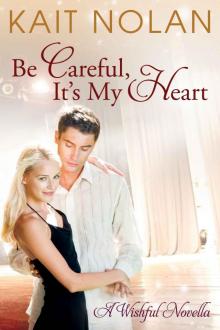 Be Careful, It's My Heart: A Small Town Southern Romance (Wishful Romance Book 2)
Be Careful, It's My Heart: A Small Town Southern Romance (Wishful Romance Book 2) Once Upon A New Year's Eve (Meet Cute Romance Book 2)
Once Upon A New Year's Eve (Meet Cute Romance Book 2)